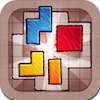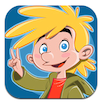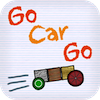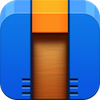6 STEM Apps for Higher-Order Thinking Reviewed
- By

- 11/13/13
Common Sense Media’s new service Graphite, which offers independent ratings and reviews on learning apps and websites, has compiled a list of its top picks of STEM apps for iOS and Android that encourage higher-order thinking skills, like those required by the Common Core State Standards. For complete reviews, and for each app’s "Learning Rating," visit the Graphite website.
1. Doodle Fit

Price: Free
Concepts: Geometry, shapes, logic, part-whole relationships
Grade Levels: 2-6
With 110 levels and multiple solutions, Doodle Fit is an engaging geometric puzzle app that helps kids exercise creative problem-solving skills and build spatial reasoning. Read the full review online.
2. World of Goo

Price: $4.99
Concepts: Gravity, motion, analyzing evidence, deduction
Grade Levels: 4-8
World of Goo challenges kids to use physics concepts -- like Newton's Laws and simple machines -- to solve puzzles, experimenting with the properties of "goo" in a quirky and fun environment. Read the full review online.
3. Amazing Alex

Price: Free. $0.99
Concepts: Physics, hypothesis-testing, imagination, collaboration
Grade Levels: 4-8
Amazing Alex is a crazy-contraptions physics puzzler that challenges kids to be inventive as they build real-world machines and devices using a handful of everyday objects and tools. Read the full review online.
4. Go Car Go

Price: $0.99
Concepts: Momentum, motion, problem-solving, strategy
Grade Levels: 5-10
Go Car Go makes construction and some fundamental laws of physics fun as kids create, test, and evaluate their car designs using varying wheels, weights, and positions. Read the full review online.
5. CargoBot

Price: Free
Concepts: Functions, engineering, thinking critically, using and applying technology
Grade Levels: 5-12
In Cargo-Bot kids drag and drop directions into place to make a robotic arm move and do what they tell it to. This introduces programming skills and concepts to kids without the complex lingo and detailed syntax of code. Read the full review online.
6. Tinkerbox

Price: Free
Concepts: Engineering, physics, solving puzzles, making new creations
Grade Levels: 6-12
With TinkerBox kids work their way through six levels of engineering puzzles, creating Rube Goldberg-like machines. It's a great way to let kids tinker around, solve problems, and create without needing supplies or space. Read the full review online.
About the Author
Common Sense Education helps educators find the best edtech tools, learn best practices for teaching with tech, and equip students with the skills they need to use technology safely and responsibly. Go to Common Sense Education for free resources including full reviews of digital tools, ready-made lesson plans, videos, webinars, and more.